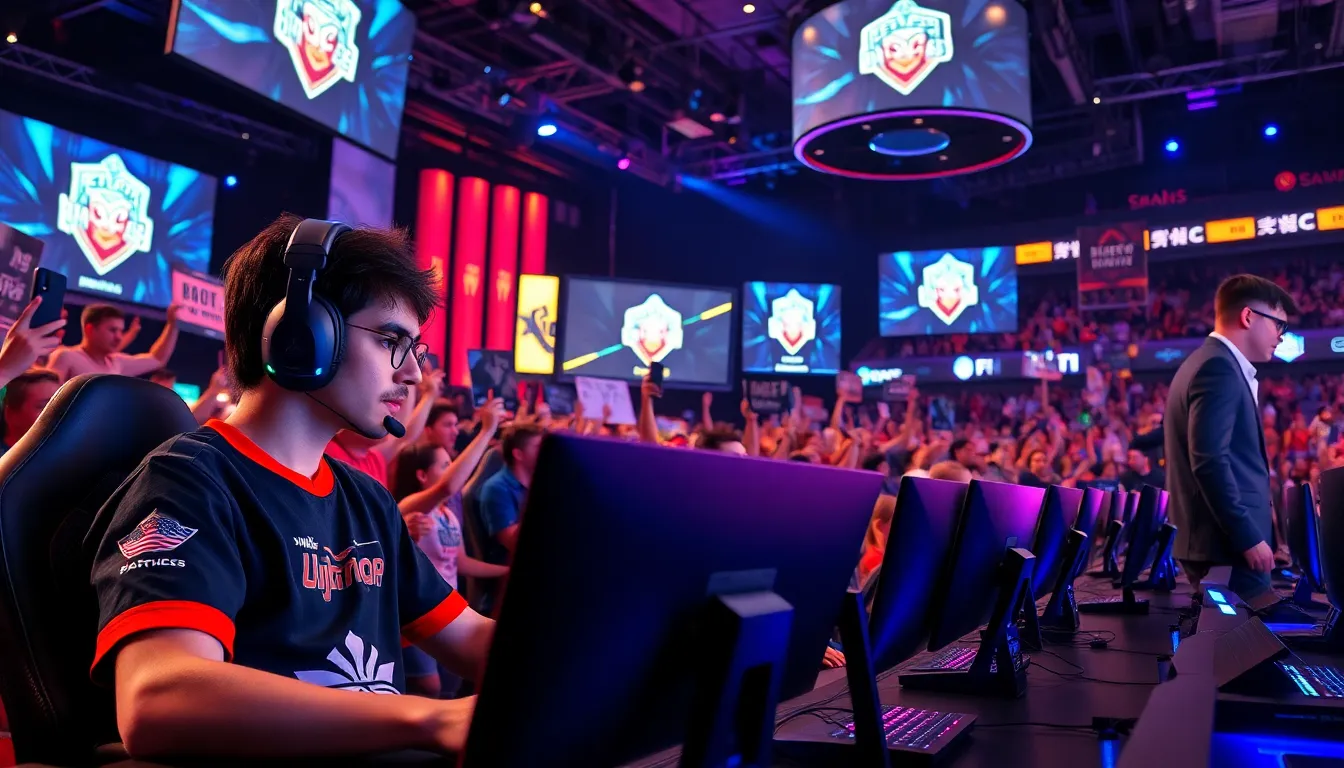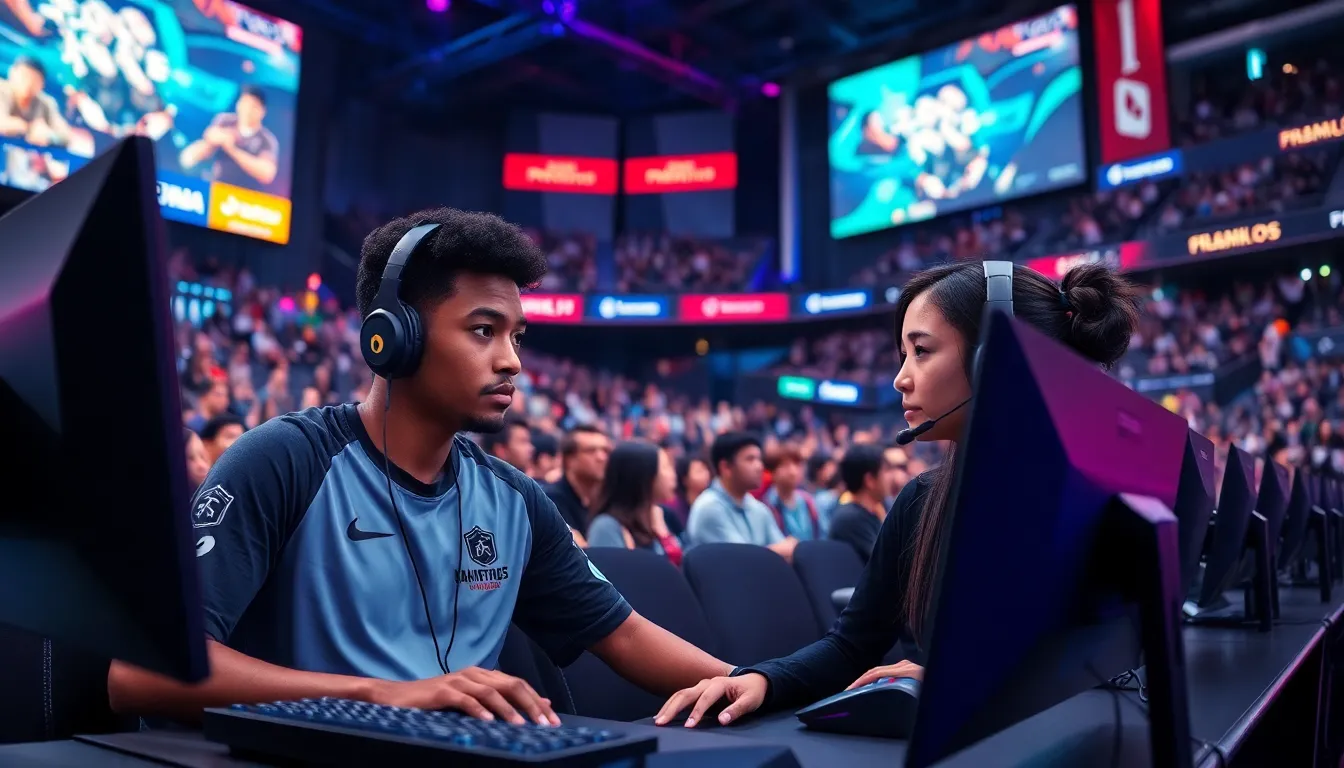The Best Fluffy Pancakes recipe you will fall in love with. Full of tips and tricks to help you make the best pancakes.

Professional Gaming: The Rise of Esports
In a world where playing video games can lead to fame, fortune, and a bespoke gamer chair that rivals most office furniture, professional gaming has exploded onto the global stage. Remember when gaming was just a pastime? Those days are long gone. Now, we’re talking about multi-million dollar tournaments, celebrity gamer influencers, and enough sponsorship money to make most sports look like they’re still in the amateur leagues. Buckle up as we dive deep into the universe of esports, and discover how it transformed a casual hobby into a dominant force in entertainment.
Professional Gaming

Professional gaming, or esports, encompasses competitive video gaming at its highest level. This isn’t just a bunch of friends battling it out in a basement. Rather, it’s a structured, high-stakes environment where players compete for glory and substantial prizes. Players can specialize in different genres, from first-person shooters to strategy games, each demanding unique skills and teamwork. Professional gamers train rigorously, honing their reflexes, strategies, and communication skills, similar to athletes in traditional sports.
Esports has a globally recognized framework, including leagues, tournaments, and officiating bodies, creating a credible landscape for competition. With millions of fans tuning in, it’s a cultural phenomenon that’s reshaping how we view both gaming and competition itself.
The Evolution of Esports
From its humble beginnings in the 1970s, when Pong was the hottest craze, esports has transformed dramatically. In the early days, players gathered in arcades to engage in friendly competitions, but fast forward to today and you’ll find packed arenas where crowds cheer on their favorite teams. The launch of games like StarCraft in the late 90s sparked organized competitions, and the growth of the internet paved the way for online tournaments and streaming.
By the 2010s, esports had its first major surge, with games like League of Legends and Dota 2 defining a new era. Companies recognized the potential for advertising and engagement, resulting in massive investments in the industry. Brands that once focused solely on traditional sports now throw their hats into the esports ring, aiming to capture the attention of younger audiences.
Key Aspects of Professional Gaming
To understand professional gaming, it’s essential to look at its critical components. From monetization strategies to the influence of sponsorships, numerous factors contribute to its success.
Monetization in Professional Gaming
Monetization is key for any industry, and esports is no different. Professional gamers have a variety of income streams. Prize money from tournaments is just one slice of the pie. A significant portion of their earnings comes from streaming on platforms like Twitch, where they earn from subscriptions, fan donations, and ad revenue. It’s not uncommon for gamers to pull in six figures simply through their online presence, advertising products and collaborating with brands.
Sponsorships and Endorsements
Major brands are jumping on board, recognizing that gamers are a highly engaged audience. Sponsorship deals can often shape an esports team’s budget, allowing them to invest in training facilities, top-tier coaches, and cutting-edge technology. Companies ranging from Razer to Red Bull see value in partnering with skilled gamers who embody their brand values.
Prize Pools and Tournaments
Prize pools have skyrocketed in recent years, with tournaments offering lucrative incentives. Take The International for Dota 2, which boasts prize pools exceeding $40 million. These stunning figures not only attract the best players but also increase viewer engagement, solidifying esports as a noteworthy contender in the entertainment industry.
The Role of Streaming Platforms
Streaming platforms play a crucial role in the growth of esports, acting as the primary medium for fans to engage with their favorite players and tournaments. Twitch and YouTube are leading the charge, providing content creators with the infrastructure to reach millions.
These platforms provide gamers a stage to showcase their skills, and the interaction is instantaneous. Streamers build personal brands, connecting directly with fans through live chats and social media. This interaction fosters a community around games, transforming casual viewers into passionate supporters. The platforms also offer opportunities for monetization through ad placements and viewer donations, making them a vital aspect of the ecosystem.
The Future of Professional Gaming
As technology continues to evolve, the future of professional gaming looks exceptionally bright. The rise of virtual and augmented reality could change the way games are played and perceived. Players might compete in entirely immersive environments, and spectators may enjoy experiences that blur the lines between watching and participating.
Also, traditional sports teams are increasingly investing in esports, signaling a convergence of these two worlds. Colleges are offering scholarships for esports athletes, legitimizing gaming as a viable career path for many. With each year, esports expands its reach further into mainstream culture, hinting at a landscape where professional gaming could rival traditional sports in viewership and sponsorship.
